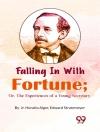Thomas Hardy’s ‘Far from the Madding Crowd’ is a poignant exploration of love, ambition, and the complexities of rural life in Victorian England. Through the intricate narrative of Bathsheba Everdene, Hardy crafts a rich tapestry of pastoral landscapes and vivid characterizations, employing a blend of realism and romanticism. The novel’s distinctive style showcases Hardy’s keen psychological insight and masterful use of irony, revealing the struggles and aspirations of his characters against the backdrop of social conventions and the unpredictable forces of nature. This literary work, situated within the Naturalistic movement, critically examines the tensions between personal desires and societal expectations. Thomas Hardy (1840-1928) was not only a prolific novelist but also a poet whose works often reflect his deep connection to the rural landscape of England and his contemplative attitudes towards fate and free will. Growing up in Dorset, Hardy was profoundly influenced by the geological and social dynamics of the English countryside, which prominently feature in ‘Far from the Madding Crowd.’ His experiences as an architect and his initial literary endeavors in poetry laid the groundwork for his profound narrative style, which deftly mingles the tragic with the celebratory. This timeless novel is highly recommended for those interested in the complexities of human relationships and the enduring conflicts between ambition and affection. Hardy’s mastery of narrative depth and his intimate portrayal of characters make this book essential reading for anyone eager to understand the human condition through the lens of rural existence, inviting critical reflection on the intricacies of love and loss.
عن المؤلف
Thomas Hardy (1840–1928) stands as a towering figure in English literature, known for his profound contributions to the Victorian realist tradition. Born in Dorset, England, Hardy crafted novels and poetry that vividly depicted the rural landscape and the life of its inhabitants, often with a tragic and philosophical depth. Among his notable works, ‘Far from the Madding Crowd’ (1874) is celebrated for its exploration of love, honor, and betrayal, set against the pastoral backdrop of Wessex—a semi-fictional region based on the English countryside that Hardy knew intimately. The novel’s compelling narrative and complex characters, like the headstrong Bathsheba Everdene and the stoic Gabriel Oak, have cemented its place in the canon of English literature (Hardy, 1874). Hardy’s literary style is characterized by his descriptive prowess, psychological insight, and a pervasive sense of fate’s inexorable force. His other prestigious works include ‘Tess of the d’Urbervilles’ (1891) and ‘Jude the Obscure’ (1895), both of which further elaborate his thematic concerns with societal constraints and individual desire. As a poet, Hardy also made significant contributions, with collections such as ‘Wessex Poems’ (1898) reflecting a similar thematic and stylistic continuity with his prose. Today, Hardy’s works continue to be widely read and studied for their artistry and their insightful commentary on the human condition.












